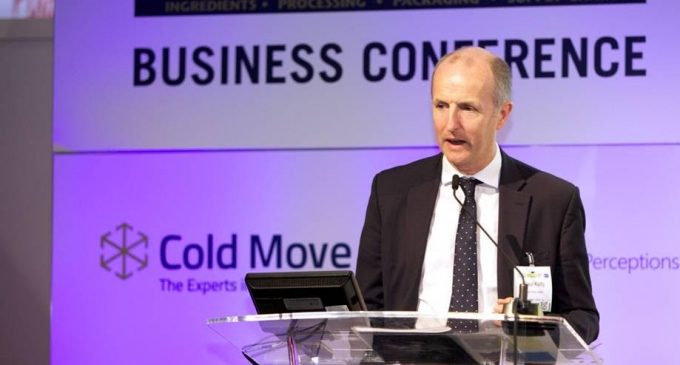Brexit and the Challenges Facing the Irish Agrifood Industry

“250,000 jobs are linked to agrifood, which is the most exposed sector with deep linkages to the wider economy,” pointed out Paul Kelly, Director of Food & Drink Industry Ireland- IBEC, when assessing the Brexit challenge facing the Irish food and drink sector at the recent 4th National Food & Drink Business Conference and Exhibition held in Dublin. He continued: “With one in eight jobs in the economy related to agrifood, it is as important to Ireland as the car industry is to Germany.”
 The Irish agrifood industry is export orientated with sales of €11.15 billion in 2016 with 37% generated in the UK – a trade which directly underpins 43,000 jobs. Indeed, the weakening of Sterling following the Brexit vote in the UK is already impacting Irish businesses.
The Irish agrifood industry is export orientated with sales of €11.15 billion in 2016 with 37% generated in the UK – a trade which directly underpins 43,000 jobs. Indeed, the weakening of Sterling following the Brexit vote in the UK is already impacting Irish businesses.
“Every 1% weakening in Sterling results in a 0.7% drop in Irish exports to the UK,” he said. Trying to gain cost recovery from UK retailers is difficult as the market is highly competitive on price due do the rise of the discount sector. “Our view is that we will see a weakening Sterling,” he added.
IBEC, which represents Irish business both domestically and internationally, is assessing the various possible post-2019 Brexit scenarios – with a ‘hard Brexit’ resulting from ‘no deal’ being the most severe and resulting in WTO tariffs applying.
Of course, Brexit will also impact on the UK agrifood sector. “Ireland is the largest export market for UK food and drink,” he remarked. “We actually share a lot of common concerns with the food and drink industry in the UK.” For example, with over 2,000 pieces of EU food and drink regulation, the potential for divergence is great and this would be damaging to trade.
“Policy makers and Government, both here and in Brussels, need to look at the various scenarios and plan to protect business,” he advocated.
Orla Battersby, Divisional Manager, Food Division at Enterprise Ireland, who also spoke at the 4th National Food & Drink Business Conference and Exhibition, characterised Brexit as “the most significant challenge of the past fifty years, which could result in long-term structural and disruptive damage.”
She elaborated: “We are already seeing a slowdown in the value of exports to the UK. The cheddar cheese sector is highly exposed.”
In a recent business survey of its agrifood clients, Enterprise Ireland found that 52% expect an impact on revenue from Brexit. Clients are postponing investments due to the uncertainty.
As the government organisation responsible for the development and growth of Irish businesses in world markets, Enterprise Ireland is advising its clients on ways to manage currency volatility and how to prepare for Brexit. It has developed a Brexit Scorecard, which client companies fill in and then, using this information, Enterprise Ireland prepares a report suggesting the next steps individual companies should take.
“In recent months, we have been advising our clients to be prepared for a ‘hard Brexit’. However, many are adapting a wait and see attitude.” She continued: “It is critical to keep investing in innovation and R&D despite the temptation to cut costs.”
Alarmingly, another survey by Enterprise Ireland revealed that 62% of businesses have still not prepared for Brexit.
Accompanying Orla Battersby’s presentation was a quotation from Charles Darwin that is highly appropriate for these challenging times – “It is not the strongest of the species that survives, nor the most intelligent that survives. It is the one that is most adaptable to change.”


































